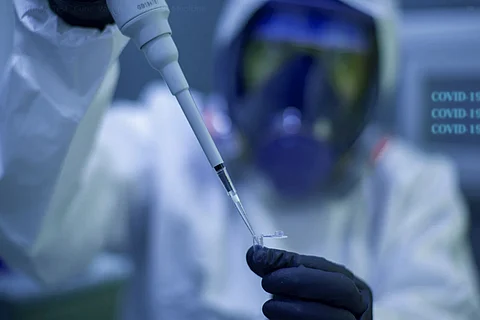

The Union Government on Wednesday announced that people over 60 years and those above 45 with comorbidities can get the COVID-19 vaccine from March 1. Prakash Javadekar announced that around 27 crore people will be vaccinated in this stage, of whom around 10 crore people are over 60. So how does one register for the COVID-19 vaccine?
Registration can be done in several ways: Updated versions of the Co-WIN and Aarogya Setu apps can be used. The government is expected to update and release the new version of these apps over the next few days. Registration windows in hospitals and Common Service Centres can be used as well for registration, which will be free of cost. Those who are above the age of 60 will need to provide a photo identity with proof of age. Those with comorbidities will require a signed medical certificate attesting to the severity of the illness, as per reports.
The list of comorbidities is yet to be finalised by the government and is expected to be released over the next two days. Reports indicate that apart from chronic heart and lung diseases, cancer, asthma, diabetes, morbid obesity and bone marrow or stem cell transplants will feature on the list.
A form will be issued by the government with the complete list of comorbidities which will have to be filled and signed by a doctor after medical examination. This form should be presented at vaccination centres to get the vaccination.
While government-run vaccination centres will provide the injections free of cost, private clinics will charge a fee for the same. The government is expected to cap the fees at Rs 300, as per reports.
Those who are getting vaccinated will not be able to choose between Covishield and Covaxin but can choose the date, time and vaccination centre of their choice based on availability. Those who are over 50-years old but have no comorbidities will be eligible in the next phase of vaccination.
A decision on the upcoming phase of COVID-19 vaccination was taken at a meeting of the Union Cabinet under the chairmanship of Prime Minister Narendra Modi on Wednesday.
"The second phase of the world's largest vaccination drive will start from Monday in which anybody above 60 years, that may not be less than 10 crore people in the country, and 45 years plus with co-morbidities will be given vaccines in 10,000 government medical facilities and also over 20,000 private hospitals," Information and Broadcasting Minister Prakash Javadekar told a media briefing.
"Whoever goes to the government centre will be administered a vaccine free of cost. Indian government will pay for them. The government will purchase the necessary doses and will send them to all the states."
Javadekar said those who want to get vaccination from private hospitals will have to pay, but the amount will be decided by the Health Ministry within the next three-four days as they are in discussions with manufacturers as well as hospitals.
Javadekar asserted that vaccination in India has been successful, "faultless with hardly any complaints".
The Union Health ministry said the cumulative number of COVID-19 vaccine doses administered to healthcare and frontline workers has crossed 1.23 crore in the country. The countrywide COVID-19 vaccination drive was rolled out on January 16.
On the three member multidisciplinary teams dispatched to states, it said they are headed by joint secretary-level officers in the health ministry.
"These teams will work closely with the states and UT administration and ascertain reasons for the recent surge in the number of COVID-19 cases," it said in a statement.
The ministry said the teams will also coordinate with health authorities of the states and Jammu and Kashmir for requisite COVID-19 control measures to break the chain of transmission.
Rakesh Mishra, director of Hyderabad's CSIR-Centre for Cellular and Molecular Biology, also agreed that the current surge in certain states is less likely due to a new variant, and more likely due to people ignoring COVID-19 protocols.
The Union government has also written to Maharashtra, Kerala, Chhattisgarh, Madhya Pradesh, Gujarat, Punjab and Jammu and Kashmir which have been witnessing a rise in daily COVID cases, along with decreasing proportion of the RT-PCR tests and rise in positivity in some districts. In the letter, the Union Health Secretary exhorted them to focus on undertaking aggressive measures to break the chain of transmission and ensure that RT-PCR testing is amplified to flush out hitherto undetected cases from the population.
(With PTI inputs)